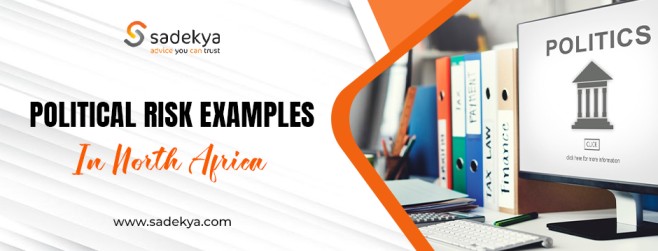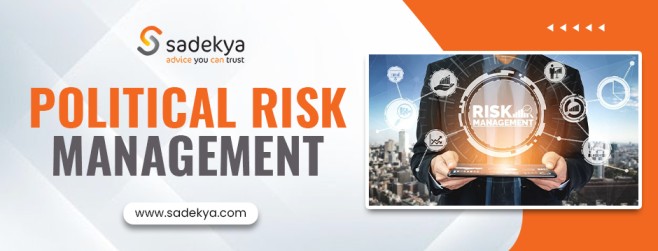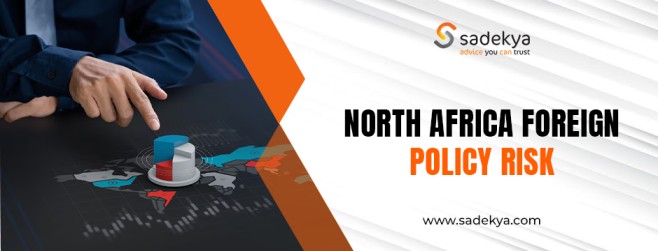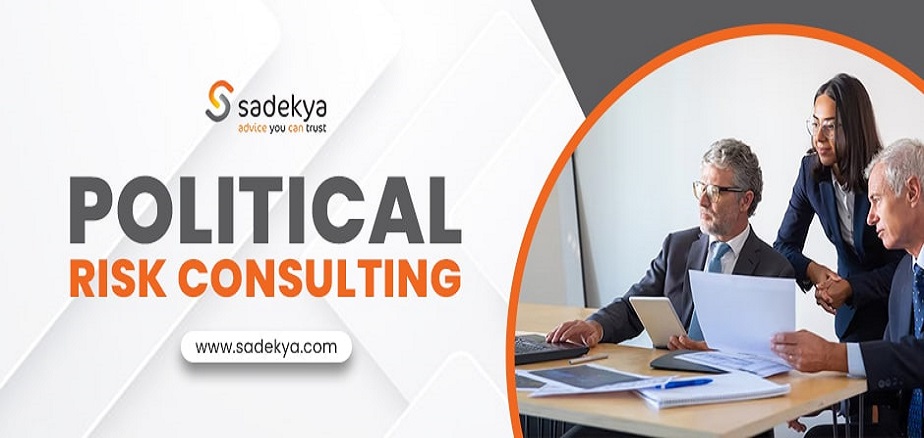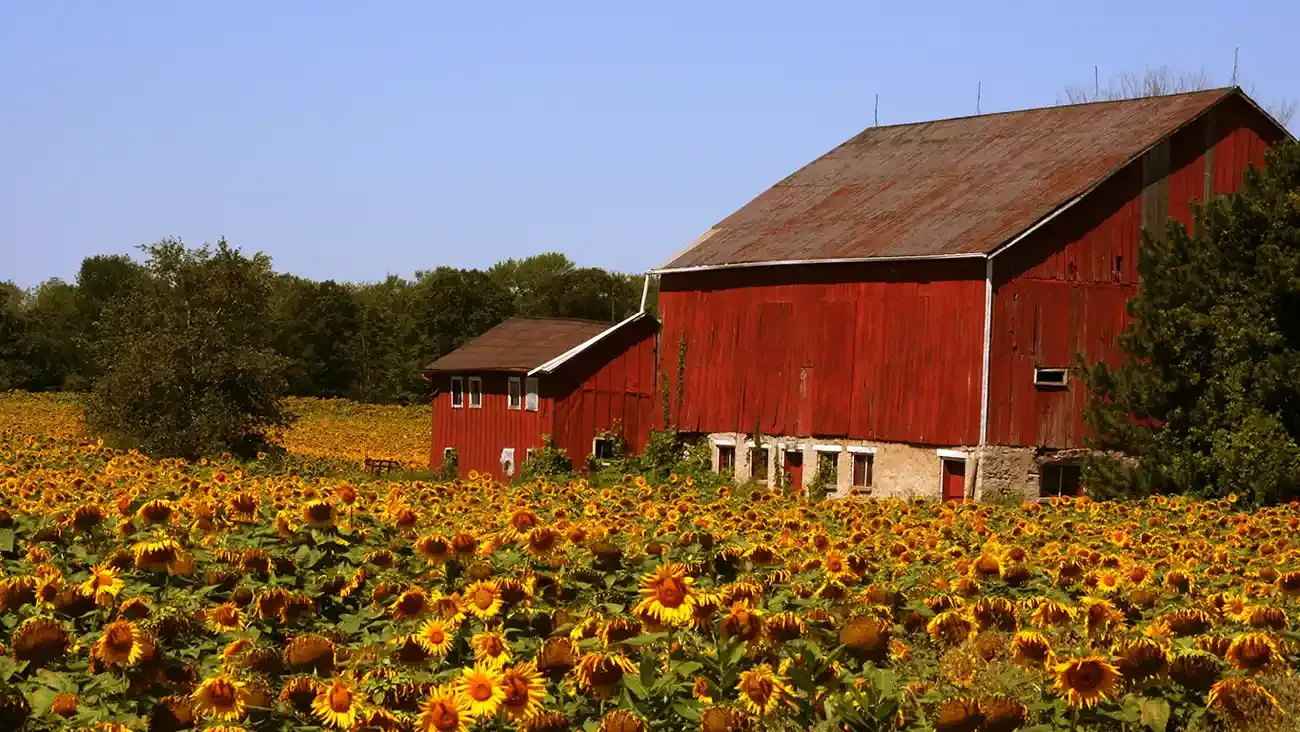North Africa is a region full of opportunity. It has natural resources, a huge population, and both European and African markets close at hand. Countries like Egypt, Algeria, Morocco, Libya, and Tunisia attract foreign investors every year. But with all these benefits, there are also serious risks, especially political ones.
In this article, we will explain what political risk is, look at some political risk examples in North Africa, and discuss what investors should consider before entering the market.
What Is Political Risk?
Political risk is the likelihood that government action, conflict, or instability will harm business operations or financial return. This includes:
- Spontaneous changes in laws
- Nationalization of assets
- Civil unrest
- Corruption
- Military coups
- Disruption to elections
- Terrorism
Political risk can impact both foreign and local investors. It can even lead to the loss of investment or render one incapable of carrying out operations in the nation.
Why North Africa?
North Africa is strategically located. It is a border region with the Mediterranean Sea, connected to the Middle East, and it opens the door to Sub-Saharan Africa. North African nations have oil, gas, agriculture, and tourism resources. But despite the promise, the region has a history of political instability.
Let us examine some real examples.
Key Political Risk Examples in North Africa
Arab Spring (2010–2011)
The Arab Spring began in Tunisia and propagated throughout North Africa and the Middle East. Long-standing regimes were overthrown in Libya, Egypt, and Tunisia. Investors lost tremendous amounts of money during these times. Infrastructure-related projects were put on hold, and foreign firms were forced to close or vacate.
Investor Lesson: Even stable regimes can fall quickly. Investing in such regions requires flexible exit strategies.
Libya’s Civil War
After the toppling of Muammar Gaddafi in 2011, Libya descended into years of warfare between rival governments and militias. Oil facilities were bombed or shut down. International oil, shipping, and building companies lost assets or withdrew from the country.
Investor Lesson: Civil wars disrupt supply chains, damage workers’ safety, and often destroy physical assets.
Egypt’s Political Transitions
Egypt experienced the ousting of President Mubarak (2011), the short-lived presidency of President Morsi, and the subsequent ascendancy of military-backed President el-Sisi. All these changes resulted in new economic legislation, the withdrawal of business transactions, and altered investment conditions.
Investor Lesson: Sudden leadership changes tend to introduce new policies, new taxes, and renegotiated contracts.
Tunisia’s Fragile Democracy
Tunisia is often hailed as a democratic success story since the Arab Spring. But political gridlock and slow reforms continue to hold back ambitious energy and infrastructure plans. The recent measures of the President to consolidate power are raising concerns.
Investor Lesson: Even in democratic countries, weak institutions can increase political instability business risk by slowing down or obstructing economic progress.
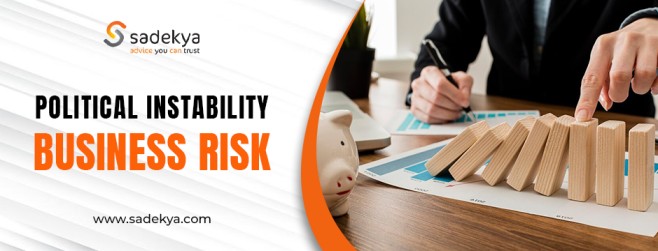
Algeria’s Political Turmoil and State Dominance
Algeria possesses a strong base of oil and gas reserves. But the state dominates large industries very tightly. Mass protests in 2019 led to the resignation of President Bouteflika. Despite a new government coming into power, there is still uncertainty. Foreign companies are required to constantly partner with state-owned entities.
Investor Lesson: Too much interference from the government can limit the freedom of business and reduce profits.
Sudden Regulatory Changes
North African governments sometimes implement fresh legislation in the middle of the night. It can include amendments to foreign ownership policies, repatriation of profit ceilings, or new taxes. For instance, foreign exchange policy changes in Egypt created a currency shortage that damaged multinational corporations.
Investor Lesson: The rules of law can change quickly and suddenly.
Industries Most Vulnerable to Political Risk
Some sectors are most susceptible to political risk in North Africa:
- Oil and Gas: Exposed to nationalization, raids, or confiscation by the government.
- Tourism: Prone to turmoil, terrorism, and travel restrictions.
- Construction & Infrastructure: Slows down when governments change.
- Finance and Banking: Affected by capital controls and currency controls.
- Agriculture and Water: Based on land legislation and resource control.
How Investors Can Prepare
While North Africa is risky, it is also rewarding. The key is smart planning—and that’s where the role of political risk consultants becomes crucial.
Employ Investment Protection Treaties
In North Africa, some countries have bilateral investment treaties (BITs). At Sadekya, our professionals use these treaties as the strongest layer of protection because they provide a legal shield that stands above local law. These treaties do not guard against a country’s foreign policy direction; instead, they protect investors from domestic regulatory or procedural risks—such as unfair treatment, sudden legal changes, or discriminatory regulations. Through arbitration mechanisms, they ensure investors can claim fair protection when local policies undermine the value of their investments.
Choose the Appropriate Business Structure
Offshore entities or a joint venture with indigenous firms can provide an extra cushion of safety. Work with a trusted company that specialises in political risk mitigation and offshore company formation.
Buy Political Risk Insurance
Organizations like MIGA (World Bank Group) and private insurance companies sell insurance for loss as a consequence of political actions. These include war, expropriation, and currency inconvertibility.
Diversify Your Locations and Operations
Avoid putting all your resources in one country. Spread your investments to other countries or regions. In this way, when one market runs into problems, your whole enterprise can’t collapse.
Monitor Political Events Closely
Partner with local consultants, embassies, or regional experts. Keep abreast of laws, elections, and social trends to catch trouble ahead of time.
Final Thoughts
North Africa is full of opportunity, but it also carries challenges. The region’s youthful demographics make it one of the fastest-growing investment destinations in the world. Political risk here is not about staying out of the market; it is about protecting yourself against internal policy shifts and choosing the right legal shield to secure your returns.
Through looking at actual political risk examples in North Africa, we learn that to prosper in these markets is through planning, flexibility, and the right partners. Whether investing in oil, tourism, or digital opportunities, it is worth hedging your bets against surprises.
If you plan to invest in North Africa and want certainty, partner with experts who understand how to shield your capital from internal risks. With Sadekya, you are protected by investment protection treaties that neutralize the uncertainty of sudden domestic policy changes. This takes away the fear many investors feel and replaces it with clarity, stability, and the confidence to pursue Africa’s high-return opportunities.



